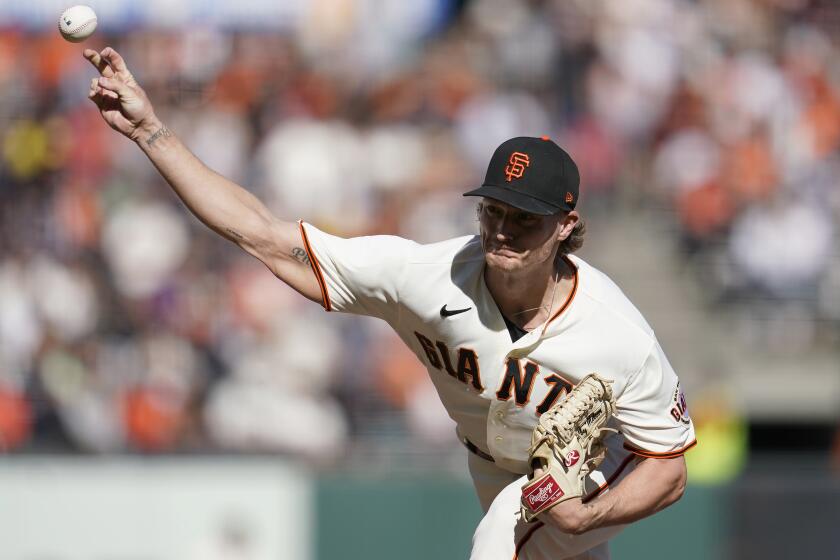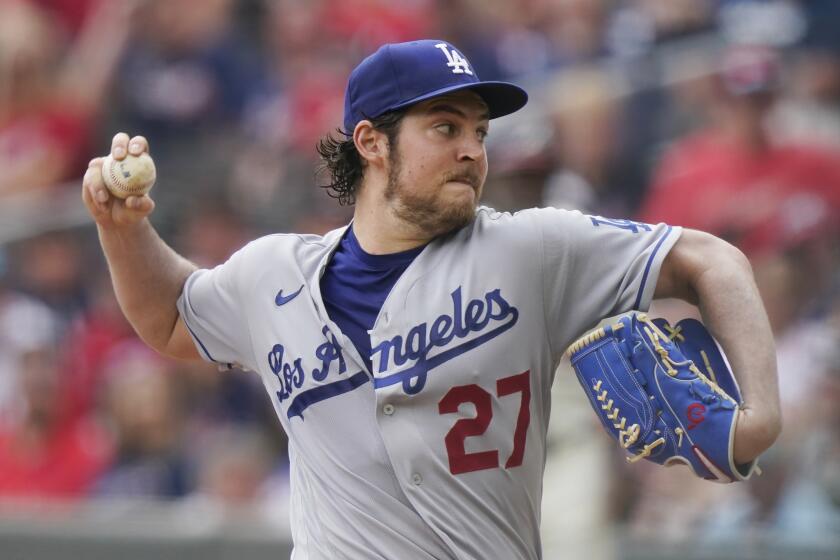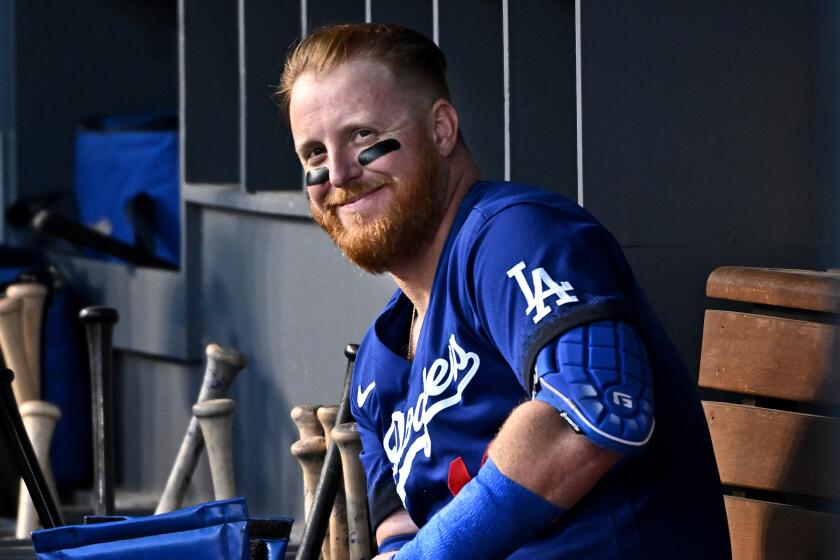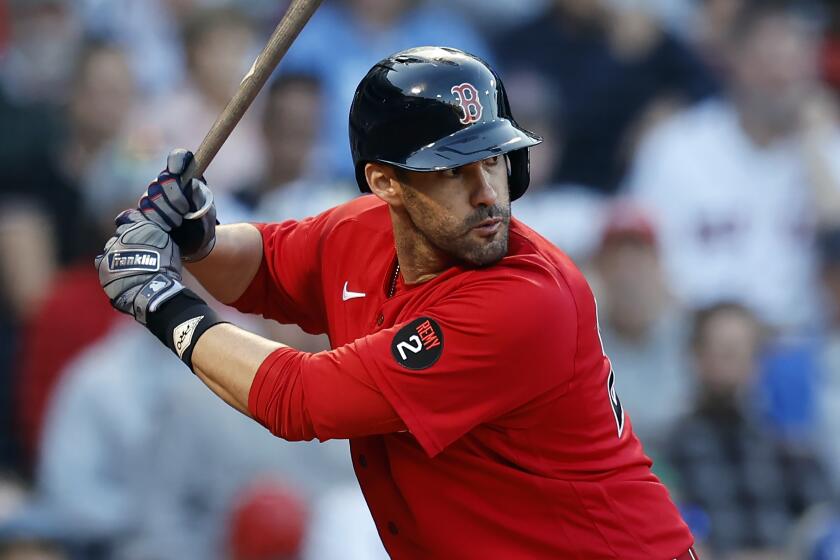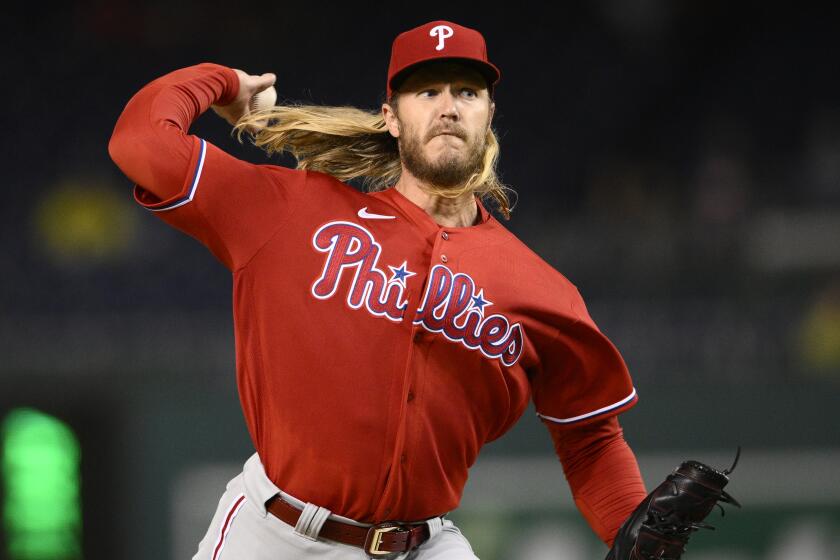
- Share via
By not taking a gamble on any of this offseason’s top free agents, the Dodgers instead placed one very big, very high-stakes bet on something else.
Themselves.
That’s perhaps the best way to summarize the club’s winter activity, in which the Dodgers made themselves an outlier among Major League Baseball’s large-market teams by not making any large-scale investments.
Almost unanimously, the sport’s other biggest contenders decided that the length and cost and risk of mega-deals was all worth it — that heavy spending is simply what it takes to compete in the majors’ current landscape.
The New York Yankees retained Aaron Judge and added Carlos Rodón.
The San Diego Padres (who signed Xander Bogaerts), Philadelphia Phillies (who signed Trea Turner) and Atlanta Braves (who traded for and then extended Sean Murphy) all spent their way into the league’s luxury tax.
An All-Star in 2015, a freak injury nearly ruined Shelby Miller’s MLB career. The veteran pitcher hopes to have a revival as a reliever with the Dodgers.
Then there are the New York Mets, who were already headed toward a league-record payroll with the additions of Justin Verlander and Kodai Senga even before reportedly agreeing to a massive deal with Carlos Correa.
The Dodgers, on the other hand, zagged in a different direction.
They spent lightly in free agency, acquiring a string of less expensive veterans on one-year deals. They sat out many of the winter’s most lucrative bidding wars, and came up empty-handed on a few others they did pursue.
Their offseason approach was no doubt influenced by the uncertainty surrounding Trevor Bauer’s status. The Dodgers did not learn until Dec. 22 that the pitcher would be reinstated for the 2023 season following a reduction to his domestic violence suspension and owed $22.5 million in salary. On Friday, they designated Bauer for assignment. They have until Thursday to trade or release him.
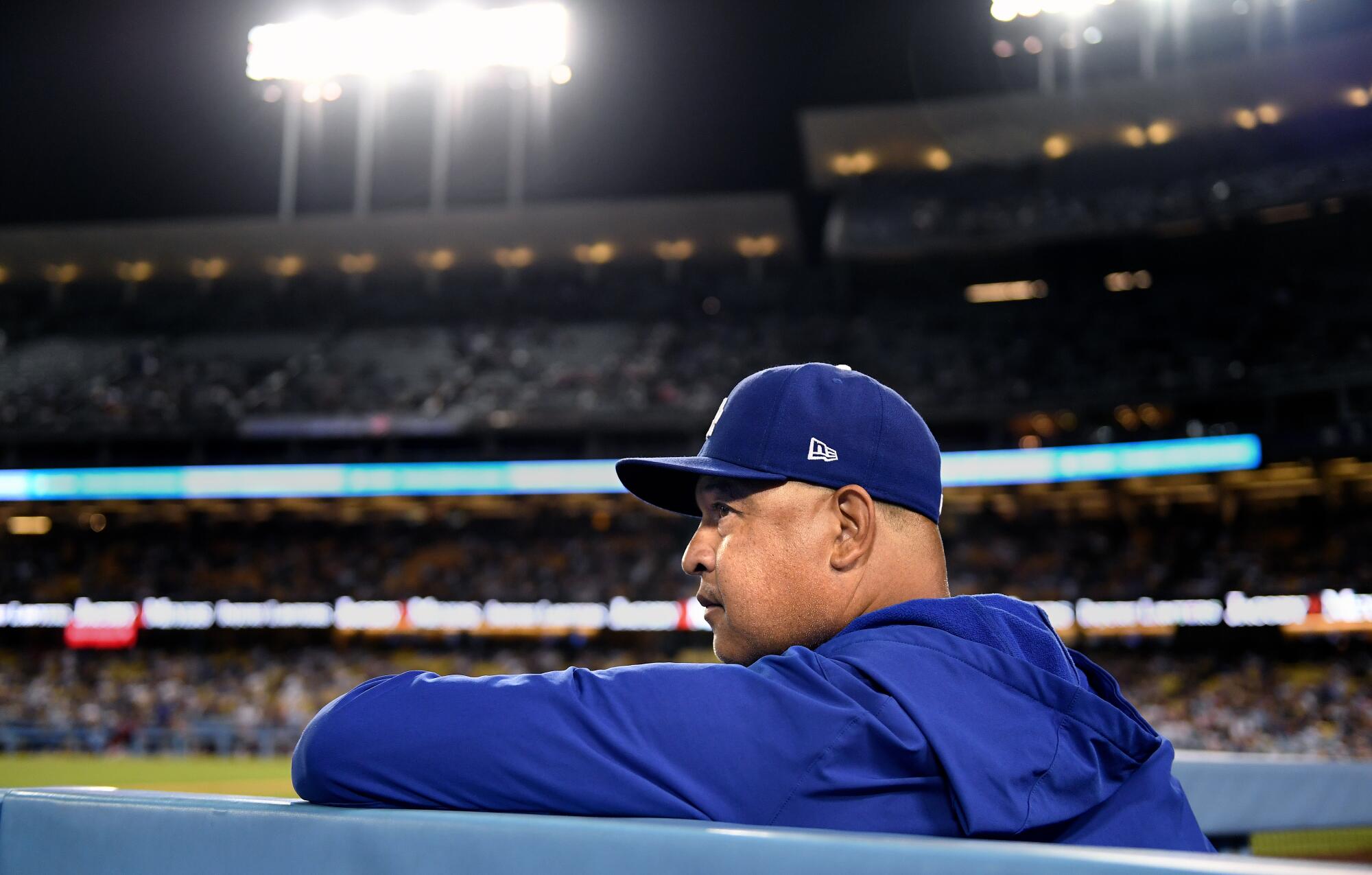
Even before Friday’s news, the Dodgers’ reticence to pay premium prices on any of their biggest needs — they have dropped from first to fifth in the majors in payroll, and currently straddle just below MLB’s $233-million luxury tax threshold — signaled an unwavering trust in their core organizational beliefs.
Preserving financial flexibility for the long-term future.
Extracting value from overlooked veterans and highly touted prospects.
And betting that their coaching staff and scouting department, analytics-minded front office and calculated approach to roster construction will continue to keep them in the championship picture — even after an offseason that has seen less addition than subtraction.
An important inflection point in this Dodgers offseason came right at the start of the winter meetings in San Diego.
The club had already freed up plenty of money by then, clearing more than $100 million by cutting ties with Justin Turner, Cody Bellinger and eight other out-of-contract free agents who didn’t re-sign in Los Angeles.
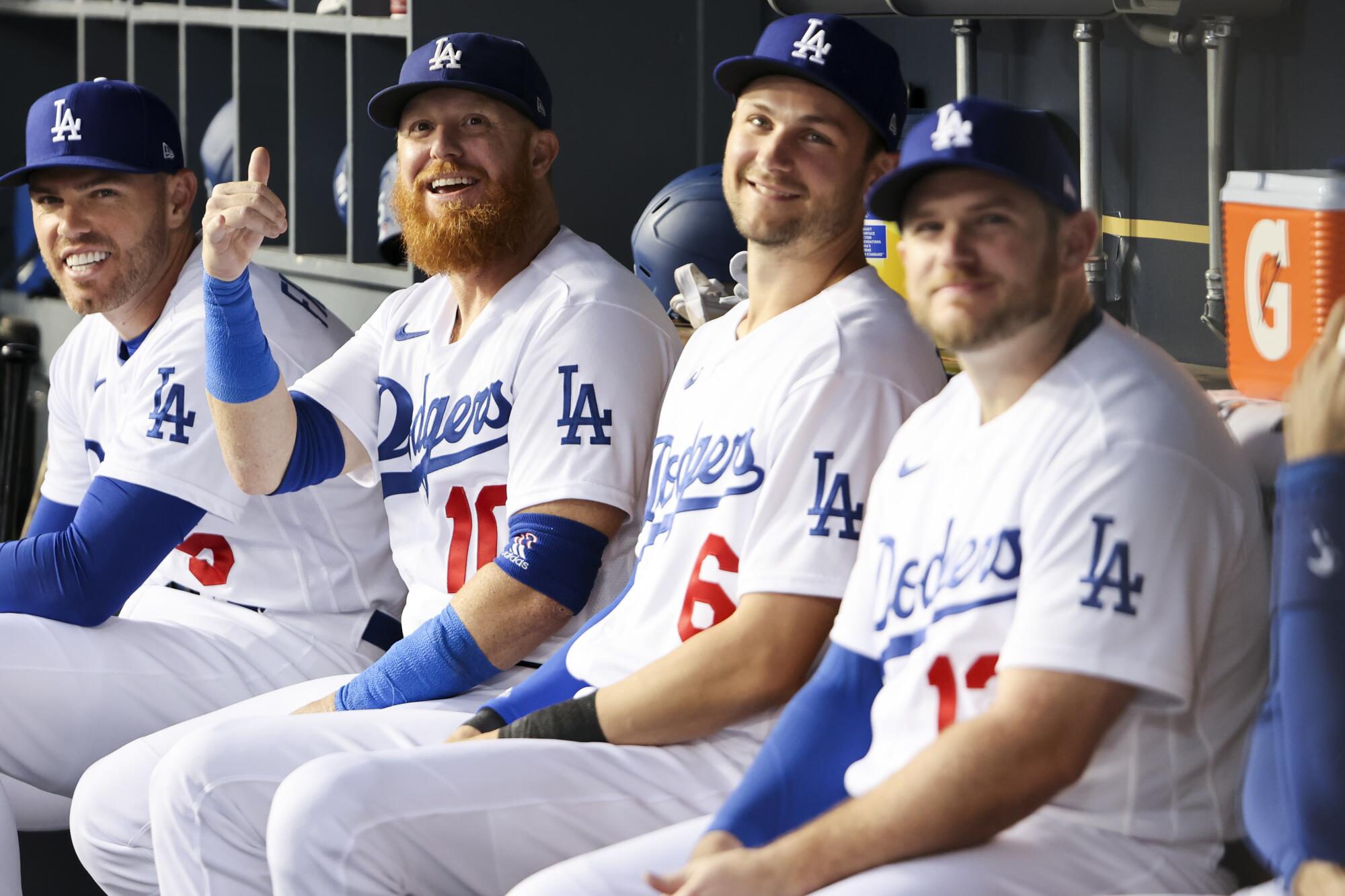
After leading the league in payroll the previous three seasons (and paying luxury tax penalties the last two), the Dodgers were keen on getting back to what they deemed were more sustainable levels of spending.
They weren’t unwilling to make a major acquisition, or even again cross MLB’s luxury tax line.
It just had to be under the right circumstances.
In that vein, one splashy addition almost did materialize — the soon-to-be 40-year-old Verlander became one of the Dodgers’ prime targets, a reigning Cy Young Award winner who fit their preference for a shorter-term, high-value contract. The Dodgers presented a two-year, $80-million contract offer.
The Dodgers were right to release Trevor Bauer after his 194-game suspension for violating MLB’s policy on domestic violence and sexual assault.
While the proposal included significant deferrals, it still would have pushed the Dodgers over the luxury tax line — no small matter with the club facing at least a 50% tax rate this year as a repeat offender — and given them an impact addition on par with the league’s other biggest moves this offseason.
Verlander opted to instead sign in New York, accepting a two-year, $86.66-million deal from the Mets with an option for a third season before the Dodgers could present any further counter proposals, according to people with knowledge of the situation.
The Dodgers shifted their focus to lower-cost veterans with potentially untapped upside while largely sitting out the sweepstakes for more established (and expensive) free-agent stars.
For most of Andrew Friedman’s tenure as the club’s president of baseball operations, this is how the Dodgers have operated.
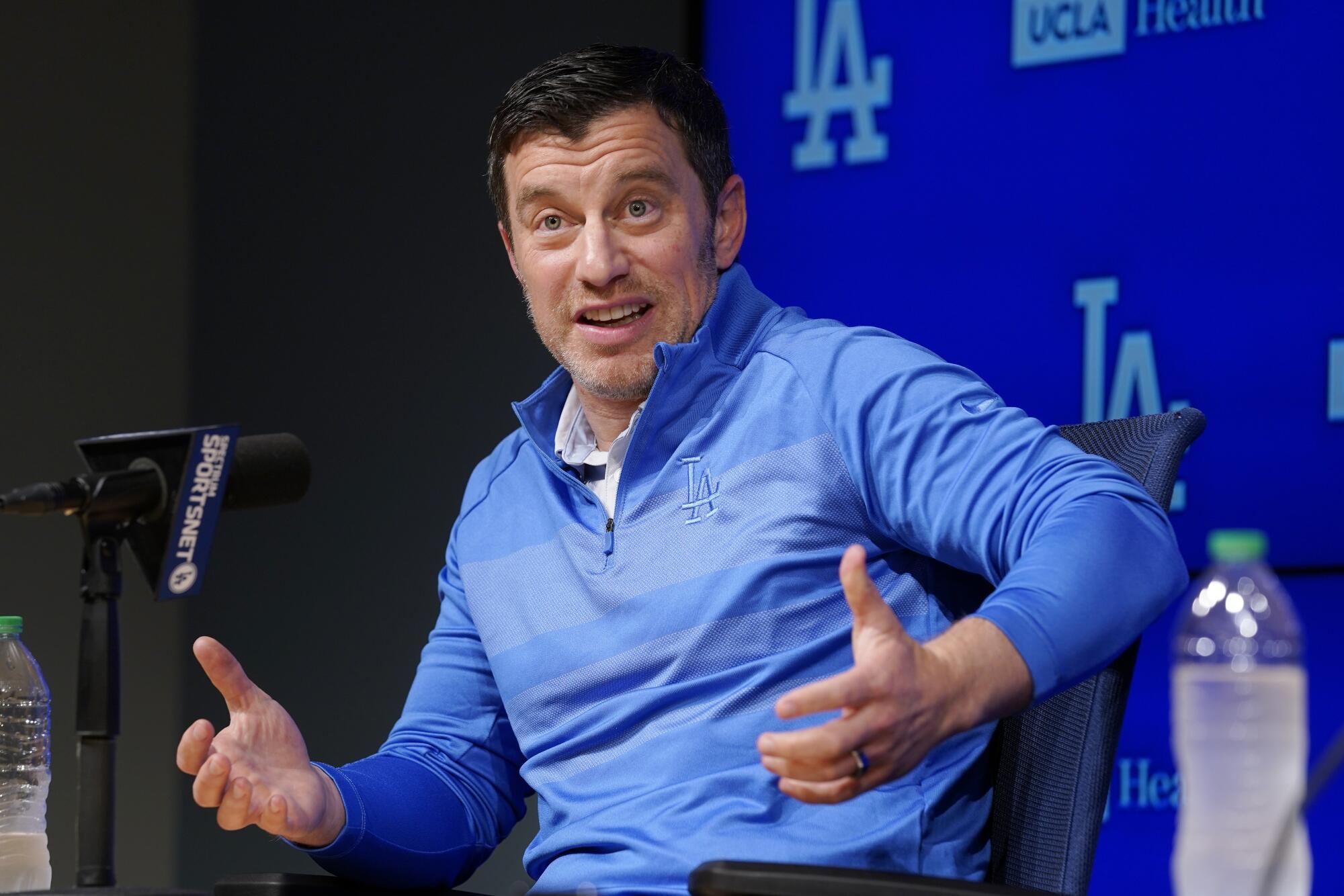
They’ll flex their financial muscle on deals they believe to be worth the value, but rarely expand their financial strike zone beyond what they deem a deal to be worth.
In recent offseasons, that has meant hanging around “the backboard,” as Friedman likes to say, in hopes of scooping up a loose superstar on the rebound.
Sometimes it works, such as their blockbuster trade and extension for Mookie Betts in 2020, or the shock signing of Freddie Freeman after the league’s lockout last spring. Sometimes it doesn’t, such as when the Dodgers missed out on Bryce Harper in 2018 and Gerrit Cole in 2019.
But for a club that prioritizes “sustained success” — another Friedman principle — and considers multi-year outlooks when constructing its roster and payroll, it has become the default course of action.
This winter proved no different.
Justin Turner was never the Dodgers’ biggest star, but he was an L.A. hero who will be greatly missed for his on- and off-the-field contributions.
While Rodón and Jacob deGrom got nine-figure guarantees, the Dodgers filled out their pitching staff with Noah Syndergaard and Shelby Miller (they were also heavily linked with Seth Lugo).
While Trea Turner, Bogaerts and Correa secured long-term deals, the Dodgers added J.D. Martinez on a one-year deal, and Jason Heyward and Steven Duggar on minor league contracts (they also made a strong push for Kevin Kiermaier).
The team never completely abandoned the thought of another marquee signing. With Dansby Swanson, for example, they positioned themselves as a shorter-term alternative for the All-Star shortstop in case he didn’t get the mega-deal he was seeking. Swanson eventually agreed to a seven-year contract with the Chicago Cubs before the holidays.
But in the end, the Dodgers effectively decided to double-down on themselves, bypassing the very top of the free-agent market with the belief they could contend in 2023 in other, less expensive ways.
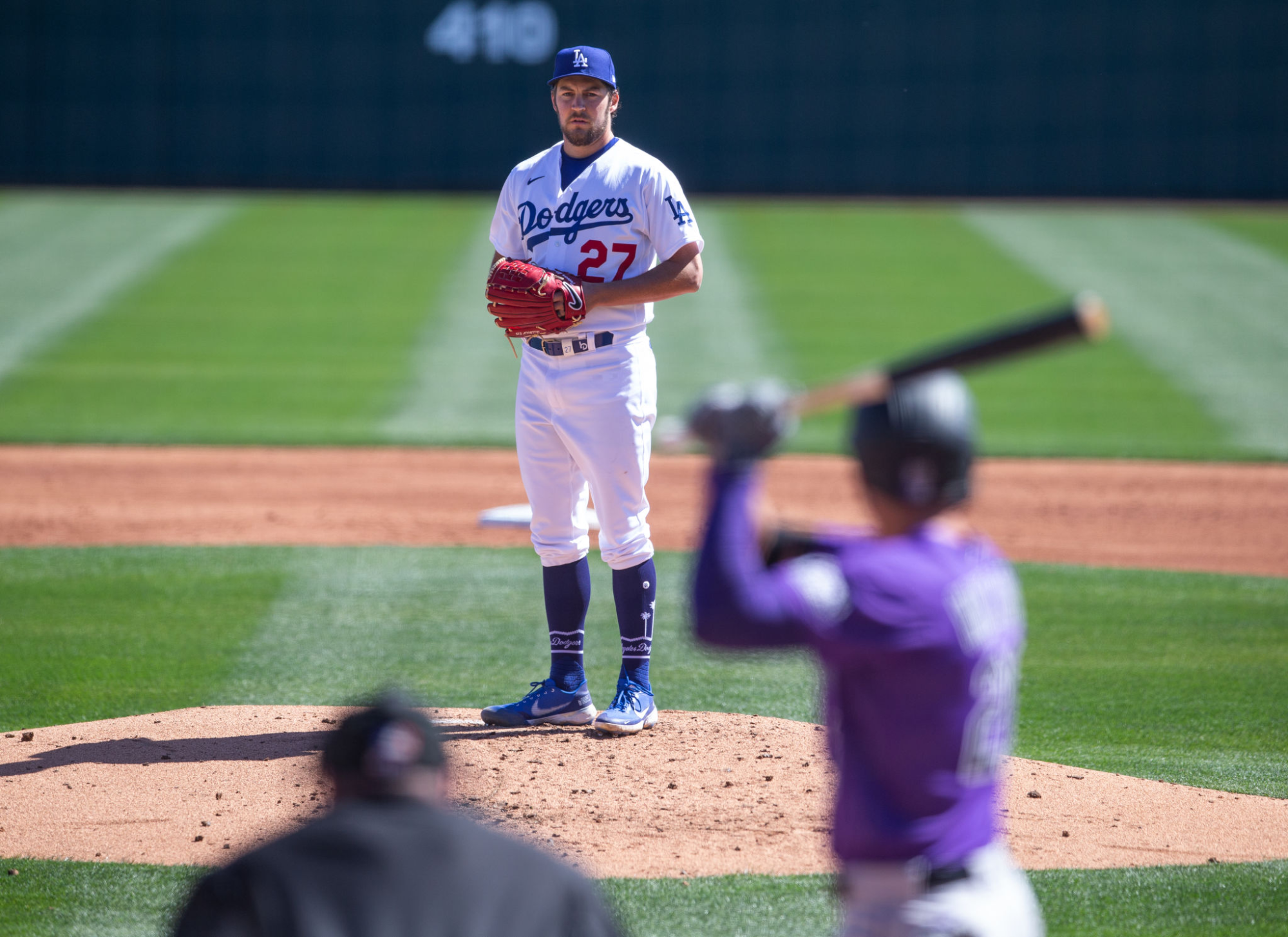
While Dodgers fans were waiting on a major signing that never came, the front office was waiting on a major ruling regarding Bauer’s 324-game domestic violence suspension.
For all of last season, the pitcher’s fate lingered in the background, his future clouded by an appeal to an independent arbitrator that took seven months to play out.
If upheld, Bauer’s suspension would have covered the remainder of his contract with the Dodgers and absolved them of his $32-million salary for 2023.
If reversed, it would have not only put Bauer back on the Dodgers’ books, but potentially forced them to retroactively pay additional luxury taxes for their 2022 payroll.
Whatever temptations the team had about joining fellow World Series contenders and splurging on a top free-agent target, the uncertainty of Bauer’s situation helped stamp that out.
Former Red Sox designated hitter J.D. Martinez agreed to a deal with the Dodgers in the latest low-cost upgrade this winter for the team.
The final ruling was neither a best- or worst-case scenario for the Dodgers.
Bauer’s reduced pay of $22.5 million, though, still provided a pathway for the Dodgers to either stay under the luxury tax, or at least assure themselves of a small tax bill that could preserve more financial flexibility for the future — thus making potential pursuits of future free agents, such as Shohei Ohtani, more viable in their long-term plans.
Where it all leaves the Dodgers in 2023 is far less clear.
Their cautiously calculated approach might not have been out of the norm, especially as they awaited an answer on Bauer. But this year, it was thrust into contrast with the big spending that took place around the league.
As other teams made big-money moves for marked roster improvements, the Dodgers currently look less talented on paper than the team that racked up a franchise-record 111 wins last season.
Trea Turner is gone, and though the club is confident in Gavin Lux taking over at shortstop, no one has arrived to replace Trea Turner’s bat at the top of the lineup.
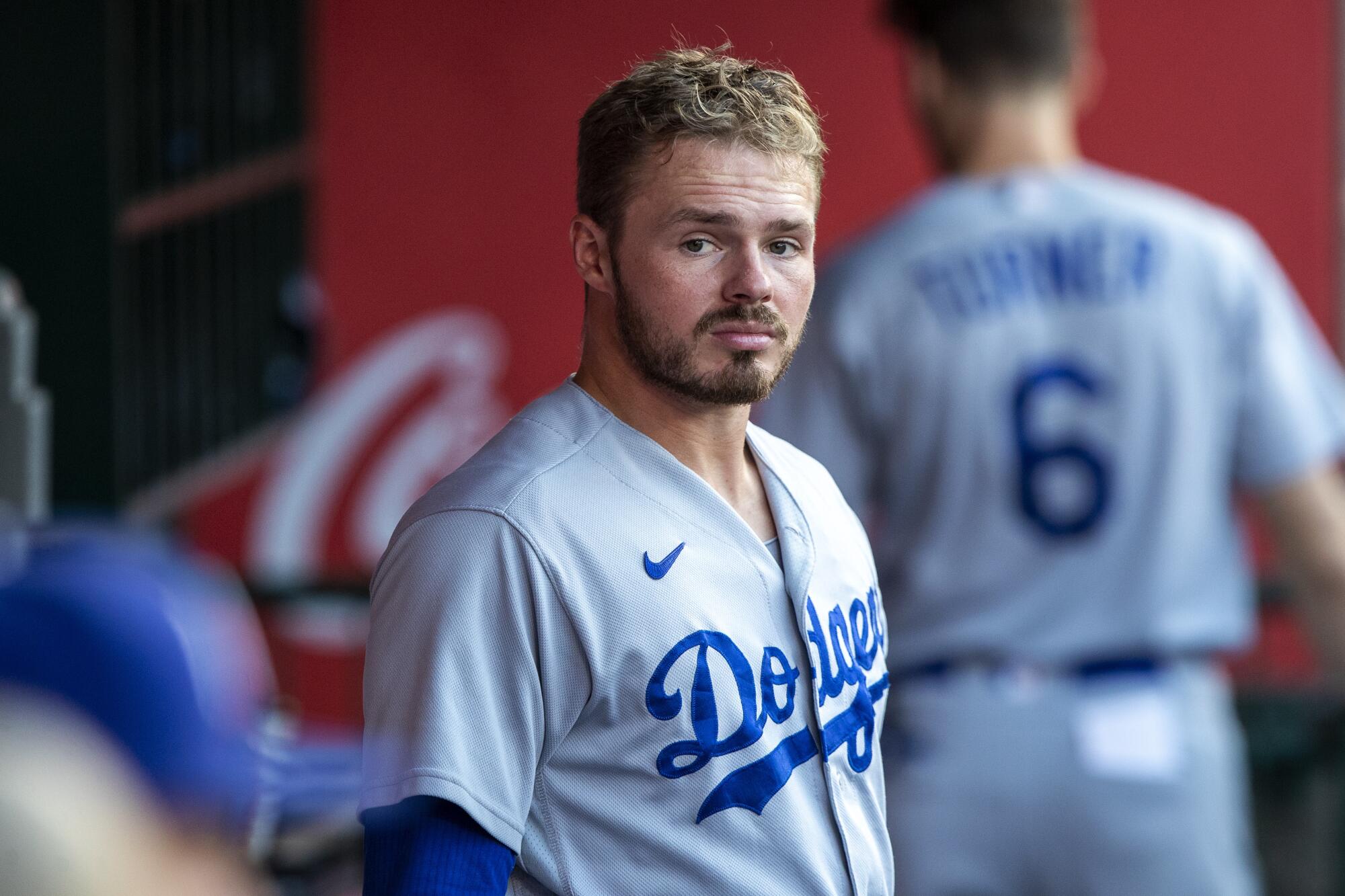
Clayton Kershaw was retained, but Tyler Anderson’s departure still leaves an All-Star-sized hole in the rotation.
Center field also remains unsettled in Bellinger’s absence. And even the de facto swap of Justin Turner (who signed with the Red Sox) for Martinez (who left the Red Sox to sign with the Dodgers) is no guaranteed upgrade, especially when factoring in Justin Turner’s role as a long-time leader in the clubhouse.
Dodgers brass sees other ways to fill those gaps.
The club is eager to integrate a new wave of prospect talent, with infielder Miguel Vargas, outfielder James Outman, and pitchers Gavin Stone, Ryan Pepiot and Bobby Miller all appearing likely to get big league opportunities at some point next season.
They also have time to keep exploring the trade market, where anyone from shortstop Willy Adames of the Milwaukee Brewers (whom the Dodgers like) to starting pitcher Pablo Lopéz of the Miami Marlins (whom the Dodgers had interest in last year) to outfielder Bryan Reynolds of the Pittsburgh Pirates (who has already requested to be dealt) could be moved before the midseason deadline.
Veteran pitcher Noah Syndergaard is confident he can be the dominant pitcher he once was when he takes the mound for the Dodgers next season.
The core of the roster — with Kershaw and Julio Urías anchoring the rotation, and Freeman and Betts headlining the lineup — remains among the most talented in the majors.
But after a winter in which they had ample payroll space, critical roster needs, and yet failed to land any number of the top free agents, the Dodgers’ lack of splashy offseason activity is shaping to be a gamble of self-belief.
They can only hope it pays off..
More to Read
Are you a true-blue fan?
Get our Dodgers Dugout newsletter for insights, news and much more.
You may occasionally receive promotional content from the Los Angeles Times.

